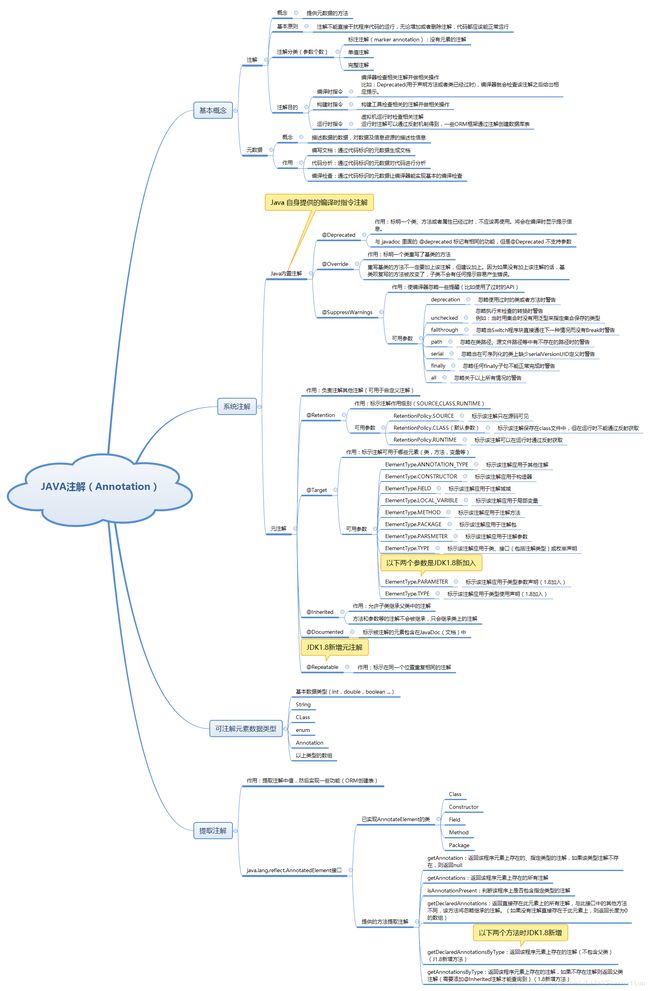- JAVA·一个简单的登录窗口
MortalTom
java开发语言学习
文章目录概要整体架构流程技术名词解释技术细节资源概要JavaSwing是Java基础类库的一部分,主要用于开发图形用户界面(GUI)程序整体架构流程新建项目,导入sql.jar包(链接放在了文末),编译项目并运行技术名词解释一、特点丰富的组件提供了多种可视化组件,如按钮(JButton)、文本框(JTextField)、标签(JLabel)、下拉列表(JComboBox)等,可以满足不同的界面设计
- 互联网 Java 工程师面试题(Java 面试题四)
苹果酱0567
面试题汇总与解析java中间件开发语言springboot后端
下面列出这份Java面试问题列表包含的主题多线程,并发及线程基础数据类型转换的基本原则垃圾回收(GC)Java集合框架数组字符串GOF设计模式SOLID抽象类与接口Java基础,如equals和hashcode泛型与枚举JavaIO与NIO常用网络协议Java中的数据结构和算法正则表达式JVM底层Java最佳实JDBCDate,Time与CalendarJava处理XMLJUnit编程现在是时候给
- JAVA相关知识
M_灵均
javajvm开发语言
JAVA基础知识说一下对象创建的过程?类加载检查:当Java虚拟机(JVM)遇到一个类的new指令时,它首先检查这个类是否已经被加载、链接和初始化。如果没有,JVM会通过类加载器(ClassLoader)加载这个类。分配内存:JVM为新对象分配内存。这个内存分配是在堆(Heap)上进行的,堆是JVM用来存储对象实例的地方。分配内存的大小在类加载时就已经确定,因为类的结构(包括字段和方法)已经确定。
- 字节跳动面试官亲述:Android开发学会了这些技术,你离大厂不远了
m0_65322636
程序员架构移动开发android
HTTPSHTTP是超文本传输协议,明文传输;HTTPS使用SSL协议对HTTP传输数据进行了加密HTTP默认80端口;HTTPS默认443端口优点:安全缺点:费时、SSL证书收费,加密能力还是有限的,但是比HTTP强多了2、Java基础&容器&同步&设计模式StringBuilder、StringBuffer、+、String.concat链接字符串:StringBuffer线程安全,Strin
- Java基础一
十一路客
java开发语言
哔哩哔哩Java开发工程师面试该如()何准备?-知乎一.JavaOOP面试题(1)什么是B/S架构?什么是C/S架构Java都有那些开发平台?B/S(Browser/Server),浏览器/服务器程序C/S(Client/Server),客户端/服务端,桌面应用程序1、C/S和B/S各有优势,C/S在图形的表现能力上以及运行的速度上肯定是强于B/S模式的,不过缺点就是他需要运行专门的客户端,而且更
- 【Java实战】使用自定义注解实现参数校验详解
.猫的树
【Java实战】系列java自定义注解参数校验
文章目录前言一、Java注解简介二、启用注解校验1.启用注解2.注解@Valid和@Validated2.1@Valid级联校验2.2@Validated高级使用三、自定义注解1.统一异常处理2.编写注解2.1自定义校验2.2多参数校验2.3列表校验总结前言由于实际开发中遇到大量相同的条件参数验证,不想写重复代码及让代码看起来更加优雅简洁,所以决定使用自定义注解进行参数校验一、Java注解简介Ja
- Java 学习路线:语言、框架、中间件与数据库
高危型
java
Java是一门功能强大、应用广泛的编程语言,适用于企业级应用、Web开发、大数据处理、Android开发等各种场景。这里为大家介绍了一下我认为较为合适的学习路线一、Java基础1.1Java语言基础1.1.1安装JDK和IDE安装JDK:下载JDK:访问Oracle官网,下载最新的JavaDevelopmentKit(JDK)。安装JDK:按照操作系统要求安装JDK并配置环境变量。Windows上
- 【保姆级】使用Java注解和反射实现JSON字段自动重命名
AQin1012
Java出坑必备~java注解后端开发语言
不知道有没有同学遇到过对接业务方代码非常“独具一格”(不符合通用规范且不愿意配合修改emmmm。。。),于是就只能“被迫”按他的格式来,但是又不想因为他的不规范导致我们自己创建的接收对象也非常的“一言难尽”。。。今天这篇帮你解决这个问题~(老规矩:附完整可执行代码)先给初学Java的同学补下基础,涉及到一些实现这个功能需要的知识点(了解的朋友可以直接跳过~)Java注解(Annotation)Ja
- java基础-线程间通信方式
问道飞鱼
Java开发技术java开发语言
文章目录1.wait()和notify()2.volatile关键字3.Java.util.concurrent包提供的工具类Semaphore(信号量)BlockingQueue(阻塞队列)4.Atomic类在Java中,线程间的通信是非常重要的,尤其是在多线程编程中,它有助于协调线程的行为,确保资源的正确访问和更新。Java提供了多种方式来实现线程间的通信,主要包括以下几种方法:1.wait(
- Java并发复习
vd_vd
Java并发安全容器java开发语言
Java基础1.为什么要使用并发编程?一般我们工作的电脑都有多核,我们创建多个线程,然后操作系统可以将多个线程分配给不同的CPU去执行,每个CPU执行一个线程,这样就提高了CPU使用效率。在网络购物中,我们买了一个东西的同时,需要减库存,生成订单等等这些操作,就可以进行拆分利用多线程的技术完成。面对复杂业务模型,并行程序串行会比程序更适应业务需求,而并发编程更能吻合这种业务拆分。->充分利用多核C
- Android 高频面试必问之Java基础
2401_86022611
android面试java
常用的JVM调参如下表:|参数|作用描述||—|—||-XX:MetaspaceSize|分配给Metaspace(以字节计)的初始大小。如果不设置的话,默认是20.79M,这个初始大小是触发首次MetaspaceFullGC的阈值,例如-XX:MetaspaceSize=256M||-XX:MaxMetaspaceSize|分配给Metaspace的最大值,超过此值就会触发FullGC,此值默认
- Java基础day08ArrayList和继承
没有信仰的小白
ArrayList类对象数组数组长度是固定,无动态扩容java.util.ArrayList集合类,更方便image无参构造函数image基本格式,Jdk7之后右侧尖括号可以留空,但是必须保留ArrayListlist=newArrayList<>();成员方法添加元素publicbooleanadd(Ee)获取元素publicEget(intindex)集合中的元素publicintsize()
- java基础系列02--面向对象
addin_gao
java面向对象封装(encapsulation)继承(inheritance)多态(polymorphism)成员变量和局部变量的区别:在类中的位置不同:成员变量:在类中方法外局部变量:在方法定义中或者方法声明上在内存中的位置不同:成员变量:在堆内存(成员变量属于对象,对象进堆内存)局部变量:在栈内存(局部变量属于方法,方法进栈内存)生命周期不同:成员变量:随着对象的创建而存在,随着对象的消失而
- Java基础全程学习笔记(二)
网路侠客
java学习笔记开发语言
第06章:面向对象-基础#面向对象内容的三条主线:>类及类的内部成员:属性、方法、构造器;代码块、内部类>面向对象的三大特征:封装性、继承性、多态性>其它关键字的使用:package、import、this、super、static、final、abstract、interface等1.理解:面向过程vs面向对象#简单的语言描述二者的区别>面向过程:以`函数`为组织单位。是一种“`执行者思维`”,
- Java基础:什么是多态
试着奔跑的菜鸟
javajava开发语言
什么是多态多态是面向对象的三大特性之一(另外两个是封装和继承),指的是同一个方法能执行不同的行为,在代码上的体现是:声明为父类的对象,可以被不同的实现类赋值,其中实现类必须继承或者实现父类接口,然后程序在运行时会执行实现类的方法。//如ArrayList和LinkedList都实现了List接口classArrayListimplementsList{}classLinkedListimpleme
- java基础之继承
Absinthe_苦艾酒
java开发语言
1.一个子类只能有一个直接父类(一个父类可以多个子类)2.private修饰符和void不能继承、不同包不能继承代码如下:父类packagebegan;//定义一个父类publicclassPet01{//属性publicStringname;//方法publicvoidrun(Stringname){System.out.println(name+"running");}}子类packagebe
- Java基础 --- 多线程&JUC,以及一些常用的设计模式总结
lzhlizihang
java设计模式
文章目录一、多线程1、线程和进程的区别2、创建多线程的四种方式3、集合中的线程安全二、设计模式1、单例模式2、装饰者模式(IO流缓冲流)3、适配器模式4、模板模式一、多线程1、线程和进程的区别进程是操作系统资源分配的基本单位,而线程是处理器任务调度和执行的基本单位,一个进程可以运行多个线程多进程:操作系统中同时运行的多个程序多线程:在同一个进程中同时运行的多个任务2、创建多线程的四种方式Runna
- Java学习路线:从零基础到高级开发者的完整指南
何遇mirror
java
初学者入门指南1.环境搭建安装JDK:下载并安装最新版本的JDK(JavaDevelopmentKit)。配置环境:设置JAVA_HOME环境变量,并将bin目录添加到PATH中。选择IDE:使用Eclipse、IntelliJIDEA或其他任何你喜欢的Java集成开发环境。2.Java基础知识HelloWorld:编写你的第一个Java程序。基本语法:学习变量、数据类型(原始类型、包装类型)、运
- Java 学习路线:适合小白的超细学习路线及实例代码
Dreams°123
后端javaeclipsejvmspringtomcatideintellij-idea
Java学习路线:适合小白的超细学习路线及实例代码一、入门基础1.1、Java基础语法1.2、面向对象编程(OOP)二、核心Java编程2.1、数据结构和算法基础2.2、输入输出(I/O)三、进阶Java编程3.1、多线程编程3.2、网络编程四、高级应用4.1、数据库编程4.2、Web开发4.3、框架与库五、实践项目与进阶学习(留作业啦)5.1、实践项目5.2、持续学习一、入门基础1.1、Java
- Java基础:单例模式,Spring源码中有哪些单例模式
生活诙谐号
Java基础Spring源码设计模式单例模式javaspring
单例模式是一种常用的软件设计模式,其目的是确保一个类仅有一个实例,并提供一个全局访问点来获取这个唯一实例。在Java中,实现单例模式通常需要遵循以下几个关键原则:私有化构造器:将类的构造器声明为private,以防止外部代码通过new操作符直接创建该类的实例。静态工厂方法:提供一个静态方法(通常称为getInstance()),用于获取单例对象。这个方法负责检查是否已经创建过实例,如果尚未创建,则
- 多线程 03:知识补充,静态代理与 Lambda 表达式的相关介绍,及其在多线程方面的应用
蟾宫曲
Java多线程java开发语言多线程静态代理Lambdaintellij-idea
一、概述记录时间[2024-08-16]前置知识:Java基础篇;Java面向对象多线程01:Java多线程学习导航,线程简介,线程相关概念的整理多线程02:线程实现,创建线程的三种方式,通过多线程下载图片案例分析异同(Thread,Runnable,Callable)Java多线程学习主要模块包括:线程简介;线程实现;线程控制;线程状态;线程同步;线程通信问题;拓展高级主题。本文是针对多线程的相
- Java基础之Java中的8种基本数据类型
w乐生
乐生的Java之路java
一,8种基本数据类型1,byte:8位1字节,取值范围:2-7----27-12,shot:16位2字节,取值范围:2-15----215-13,int:32位4字节,取值范围:2-31----231-14,long:64位8字节,取值范围:2-63----263-15,float:32位4字节,取值范围:-2-31----231-16,double:64位8字节,取值范围:-2-63----26
- Java学习路线
纣王家子迎新
javajava学习
一、Java基础阶段Java语言基础:数据类型与变量:了解Java中的基本数据类型(如int、float、double等)和引用数据类型,掌握变量的声明、初始化和使用。运算符与表达式:学习Java中的算术运算符、关系运算符、逻辑运算符等,以及它们的使用规则和优先级。流程控制:掌握条件语句(if-else)、循环语句(for、while、do-while)和跳转语句(break、continue
- 2024上学期--实验室学习计划
m0_66357705
javascript前端vue.js
阶段周次学习内容实践内容时间安排新增内容/重点基础巩固1-2周Java基础,多线程,TCP/IP网络编程相关练习和小的编程项目每天学习2小时,实践1小时Java20及以上版本新特性学习框架深入学习3-6周Spring,SpringBoot相关练习和小的编程项目每天学习3小时,实践1.5小时学习SpringCloud和微服务架构基础前端技术提升7-8周Vue2,Vue3相关练习和小的编程项目每天学习
- Java基础——深入理解Java中的多线程(超级详细,值得你看)
2401_84558508
作者\/java开发语言
开发中优先选择实现Runnable方式原因:实现的方式没有类的单继承性的局限性实现的方式更适合来处理多个线程共享数据的情况相同点:都需要重写run(),将线程要执行的代码声明在run()方法中线程的生命周期解决线程安全问题;使用同步代码块packagecom.haust.java;/*出现线程安全问他的解决方法:当一个线程a在操作ticket的时候,其他线程不能参与进来,直到线程参与进来,也操作完
- 庖丁解java(一篇文章学java)
庖丁解java
java开发语言
(大家不用收藏这篇文章,因为这篇文章会经常更新,也就是删除后重发)一篇文章学java,这是我滴一个执念...当然,真一篇文章就写完java基础,java架构,java业务实现,java业务扩展,根本不可能.所以,这篇文章,就是一个索引,索什么呢?请看下文.关于决定开始写博文的介绍(一切故事的起点源于这一次反省)中小技术公司的软扩展(微服务扩展是否有必要?)-CSDN博客SpringCloud(一个
- Java基础 -- 05反射reflect
mmlz00
Java基础Java基础反射reflectProxy动态代理
目录引序说不通1:注解说不通2:匿名内部类说不通3:动态代理反射:反射定义强调:类对象又强调:static类静态成员再三强调:synchronized修饰符类对象:知晓类结构类结构之:内部成员内部成员--构造函数内部成员--数据成员内部成员--方法成员静态代理:动态代理:反射+注解反射+泛型+注解getGenericSuperclass()用法引序引序:开始反射概念学习之前,先来段引序。请牢记:计
- 从零开始学习Java的100个课程
陈在天box
java大数据开发语言
哈喽大家好,今天给大家推荐的是从零开始学习Java的100个课程,接下来我会每天更新两篇课程经验供大家参考学习;以下是为大家设计的从零开始学习Java的100个课程:一、Java基础语法Java开发环境搭建安装JDK配置环境变量编写并运行第一个Java程序基本数据类型整数类型(byte、short、int、long)浮点类型(float、double)字符类型(char)布尔类型(boolean)
- java基础知识
阿拉伯的劳伦斯292
java开发语言
1.java简介跨平台性:Java语言的“一次编写,到处运行”特性是这一语言的重要优势,java程序编译成字节码,可以在安装了Java虚拟机(JVM,javavirtualmachine)的不同操作系统上运行面向对象:java是一门完全的面向对象编程语言,支持继承,抽象,封装和多态的特性内存管理:java通过垃圾回收器(GarbageCollector)自动管理内存,这就不用开发者手动释放内存了,
- 2025届美团秋招笔试题
今天不coding
python算法开发语言
题型及时间90分钟单选10+算法3单选包括Java基础八股文、设计模式、计算机网络、sql语句算法1题目描述小美准备登录美团,需要输入密码,小美忘记了密码,只记得密码可能是n个字符串中的一个。小美会按照密码的长度从小到大依次尝试每个字符串,对于相同长度的字符串,小美随机尝试,并且相同的密码只会尝试一次。小美想知道,她最少需要尝试多少次才能登录成功,最多需要尝试多少次才能登录成功。小美不会重新尝试已
- VMware Workstation 11 或者 VMware Player 7安装MAC OS X 10.10 Yosemite
iwindyforest
vmwaremac os10.10workstationplayer
最近尝试了下VMware下安装MacOS 系统,
安装过程中发现网上可供参考的文章都是VMware Workstation 10以下, MacOS X 10.9以下的文章,
只能提供大概的思路, 但是实际安装起来由于版本问题, 走了不少弯路, 所以我尝试写以下总结, 希望能给有兴趣安装OSX的人提供一点帮助。
写在前面的话:
其实安装好后发现, 由于我的th
- 关于《基于模型驱动的B/S在线开发平台》源代码开源的疑虑?
deathwknight
JavaScriptjava框架
本人从学习Java开发到现在已有10年整,从一个要自学 java买成javascript的小菜鸟,成长为只会java和javascript语言的老菜鸟(个人邮箱:
[email protected])
一路走来,跌跌撞撞。用自己的三年多业余时间,瞎搞一个小东西(基于模型驱动的B/S在线开发平台,非MVC框架、非代码生成)。希望与大家一起分享,同时有许些疑虑,希望有人可以交流下
平台
- 如何把maven项目转成web项目
Kai_Ge
mavenMyEclipse
创建Web工程,使用eclipse ee创建maven web工程 1.右键项目,选择Project Facets,点击Convert to faceted from 2.更改Dynamic Web Module的Version为2.5.(3.0为Java7的,Tomcat6不支持). 如果提示错误,可能需要在Java Compiler设置Compiler compl
- 主管???
Array_06
工作
转载:http://www.blogjava.net/fastzch/archive/2010/11/25/339054.html
很久以前跟同事参加的培训,同事整理得很详细,必须得转!
前段时间,公司有组织中高阶主管及其培养干部进行了为期三天的管理训练培训。三天的课程下来,虽然内容较多,因对老师三天来的课程内容深有感触,故借着整理学习心得的机会,将三天来的培训课程做了一个
- python内置函数大全
2002wmj
python
最近一直在看python的document,打算在基础方面重点看一下python的keyword、Build-in Function、Build-in Constants、Build-in Types、Build-in Exception这四个方面,其实在看的时候发现整个《The Python Standard Library》章节都是很不错的,其中描述了很多不错的主题。先把Build-in Fu
- JSP页面通过JQUERY合并行
357029540
JavaScriptjquery
在写程序的过程中我们难免会遇到在页面上合并单元行的情况,如图所示
如果对于会的同学可能很简单,但是对没有思路的同学来说还是比较麻烦的,提供一下用JQUERY实现的参考代码
function mergeCell(){
var trs = $("#table tr");
&nb
- Java基础
冰天百华
java基础
学习函数式编程
package base;
import java.text.DecimalFormat;
public class Main {
public static void main(String[] args) {
// Integer a = 4;
// Double aa = (double)a / 100000;
// Decimal
- unix时间戳相互转换
adminjun
转换unix时间戳
如何在不同编程语言中获取现在的Unix时间戳(Unix timestamp)? Java time JavaScript Math.round(new Date().getTime()/1000)
getTime()返回数值的单位是毫秒 Microsoft .NET / C# epoch = (DateTime.Now.ToUniversalTime().Ticks - 62135
- 作为一个合格程序员该做的事
aijuans
程序员
作为一个合格程序员每天该做的事 1、总结自己一天任务的完成情况 最好的方式是写工作日志,把自己今天完成了什么事情,遇见了什么问题都记录下来,日后翻看好处多多
2、考虑自己明天应该做的主要工作 把明天要做的事情列出来,并按照优先级排列,第二天应该把自己效率最高的时间分配给最重要的工作
3、考虑自己一天工作中失误的地方,并想出避免下一次再犯的方法 出错不要紧,最重
- 由html5视频播放引发的总结
ayaoxinchao
html5视频video
前言
项目中存在视频播放的功能,前期设计是以flash播放器播放视频的。但是现在由于需要兼容苹果的设备,必须采用html5的方式来播放视频。我就出于兴趣对html5播放视频做了简单的了解,不了解不知道,水真是很深。本文所记录的知识一些浅尝辄止的知识,说起来很惭愧。
视频结构
本该直接介绍html5的<video>的,但鉴于本人对视频
- 解决httpclient访问自签名https报javax.net.ssl.SSLHandshakeException: sun.security.validat
bewithme
httpclient
如果你构建了一个https协议的站点,而此站点的安全证书并不是合法的第三方证书颁发机构所签发,那么你用httpclient去访问此站点会报如下错误
javax.net.ssl.SSLHandshakeException: sun.security.validator.ValidatorException: PKIX path bu
- Jedis连接池的入门级使用
bijian1013
redisredis数据库jedis
Jedis连接池操作步骤如下:
a.获取Jedis实例需要从JedisPool中获取;
b.用完Jedis实例需要返还给JedisPool;
c.如果Jedis在使用过程中出错,则也需要还给JedisPool;
packag
- 变与不变
bingyingao
不变变亲情永恒
变与不变
周末骑车转到了五年前租住的小区,曾经最爱吃的西北面馆、江西水饺、手工拉面早已不在,
各种店铺都换了好几茬,这些是变的。
三年前还很流行的一款手机在今天看起来已经落后的不像样子。
三年前还运行的好好的一家公司,今天也已经不复存在。
一座座高楼拔地而起,
- 【Scala十】Scala核心四:集合框架之List
bit1129
scala
Spark的RDD作为一个分布式不可变的数据集合,它提供的转换操作,很多是借鉴于Scala的集合框架提供的一些函数,因此,有必要对Scala的集合进行详细的了解
1. 泛型集合都是协变的,对于List而言,如果B是A的子类,那么List[B]也是List[A]的子类,即可以把List[B]的实例赋值给List[A]变量
2. 给变量赋值(注意val关键字,a,b
- Nested Functions in C
bookjovi
cclosure
Nested Functions 又称closure,属于functional language中的概念,一直以为C中是不支持closure的,现在看来我错了,不过C标准中是不支持的,而GCC支持。
既然GCC支持了closure,那么 lexical scoping自然也支持了,同时在C中label也是可以在nested functions中自由跳转的
- Java-Collections Framework学习与总结-WeakHashMap
BrokenDreams
Collections
总结这个类之前,首先看一下Java引用的相关知识。Java的引用分为四种:强引用、软引用、弱引用和虚引用。
强引用:就是常见的代码中的引用,如Object o = new Object();存在强引用的对象不会被垃圾收集
- 读《研磨设计模式》-代码笔记-解释器模式-Interpret
bylijinnan
java设计模式
声明: 本文只为方便我个人查阅和理解,详细的分析以及源代码请移步 原作者的博客http://chjavach.iteye.com/
package design.pattern;
/*
* 解释器(Interpreter)模式的意图是可以按照自己定义的组合规则集合来组合可执行对象
*
* 代码示例实现XML里面1.读取单个元素的值 2.读取单个属性的值
* 多
- After Effects操作&快捷键
cherishLC
After Effects
1、快捷键官方文档
中文版:https://helpx.adobe.com/cn/after-effects/using/keyboard-shortcuts-reference.html
英文版:https://helpx.adobe.com/after-effects/using/keyboard-shortcuts-reference.html
2、常用快捷键
- Maven 常用命令
crabdave
maven
Maven 常用命令
mvn archetype:generate
mvn install
mvn clean
mvn clean complie
mvn clean test
mvn clean install
mvn clean package
mvn test
mvn package
mvn site
mvn dependency:res
- shell bad substitution
daizj
shell脚本
#!/bin/sh
/data/script/common/run_cmd.exp 192.168.13.168 "impala-shell -islave4 -q 'insert OVERWRITE table imeis.${tableName} select ${selectFields}, ds, fnv_hash(concat(cast(ds as string), im
- Java SE 第二讲(原生数据类型 Primitive Data Type)
dcj3sjt126com
java
Java SE 第二讲:
1. Windows: notepad, editplus, ultraedit, gvim
Linux: vi, vim, gedit
2. Java 中的数据类型分为两大类:
1)原生数据类型 (Primitive Data Type)
2)引用类型(对象类型) (R
- CGridView中实现批量删除
dcj3sjt126com
PHPyii
1,CGridView中的columns添加
array(
'selectableRows' => 2,
'footer' => '<button type="button" onclick="GetCheckbox();" style=&
- Java中泛型的各种使用
dyy_gusi
java泛型
Java中的泛型的使用:1.普通的泛型使用
在使用类的时候后面的<>中的类型就是我们确定的类型。
public class MyClass1<T> {//此处定义的泛型是T
private T var;
public T getVar() {
return var;
}
public void setVa
- Web开发技术十年发展历程
gcq511120594
Web浏览器数据挖掘
回顾web开发技术这十年发展历程:
Ajax
03年的时候我上六年级,那时候网吧刚在小县城的角落萌生。传奇,大话西游第一代网游一时风靡。我抱着试一试的心态给了网吧老板两块钱想申请个号玩玩,然后接下来的一个小时我一直在,注,册,账,号。
彼时网吧用的512k的带宽,注册的时候,填了一堆信息,提交,页面跳转,嘣,”您填写的信息有误,请重填”。然后跳转回注册页面,以此循环。我现在时常想,如果当时a
- openSession()与getCurrentSession()区别:
hetongfei
javaDAOHibernate
来自 http://blog.csdn.net/dy511/article/details/6166134
1.getCurrentSession创建的session会和绑定到当前线程,而openSession不会。
2. getCurrentSession创建的线程会在事务回滚或事物提交后自动关闭,而openSession必须手动关闭。
这里getCurrentSession本地事务(本地
- 第一章 安装Nginx+Lua开发环境
jinnianshilongnian
nginxluaopenresty
首先我们选择使用OpenResty,其是由Nginx核心加很多第三方模块组成,其最大的亮点是默认集成了Lua开发环境,使得Nginx可以作为一个Web Server使用。借助于Nginx的事件驱动模型和非阻塞IO,可以实现高性能的Web应用程序。而且OpenResty提供了大量组件如Mysql、Redis、Memcached等等,使在Nginx上开发Web应用更方便更简单。目前在京东如实时价格、秒
- HSQLDB In-Process方式访问内存数据库
liyonghui160com
HSQLDB一大特色就是能够在内存中建立数据库,当然它也能将这些内存数据库保存到文件中以便实现真正的持久化。
先睹为快!
下面是一个In-Process方式访问内存数据库的代码示例:
下面代码需要引入hsqldb.jar包 (hsqldb-2.2.8)
import java.s
- Java线程的5个使用技巧
pda158
java数据结构
Java线程有哪些不太为人所知的技巧与用法? 萝卜白菜各有所爱。像我就喜欢Java。学无止境,这也是我喜欢它的一个原因。日常
工作中你所用到的工具,通常都有些你从来没有了解过的东西,比方说某个方法或者是一些有趣的用法。比如说线程。没错,就是线程。或者确切说是Thread这个类。当我们在构建高可扩展性系统的时候,通常会面临各种各样的并发编程的问题,不过我们现在所要讲的可能会略有不同。
- 开发资源大整合:编程语言篇——JavaScript(1)
shoothao
JavaScript
概述:本系列的资源整合来自于github中各个领域的大牛,来收藏你感兴趣的东西吧。
程序包管理器
管理javascript库并提供对这些库的快速使用与打包的服务。
Bower - 用于web的程序包管理。
component - 用于客户端的程序包管理,构建更好的web应用程序。
spm - 全新的静态的文件包管
- 避免使用终结函数
vahoa.ma
javajvmC++
终结函数(finalizer)通常是不可预测的,常常也是很危险的,一般情况下不是必要的。使用终结函数会导致不稳定的行为、更差的性能,以及带来移植性问题。不要把终结函数当做C++中的析构函数(destructors)的对应物。
我自己总结了一下这一条的综合性结论是这样的:
1)在涉及使用资源,使用完毕后要释放资源的情形下,首先要用一个显示的方
